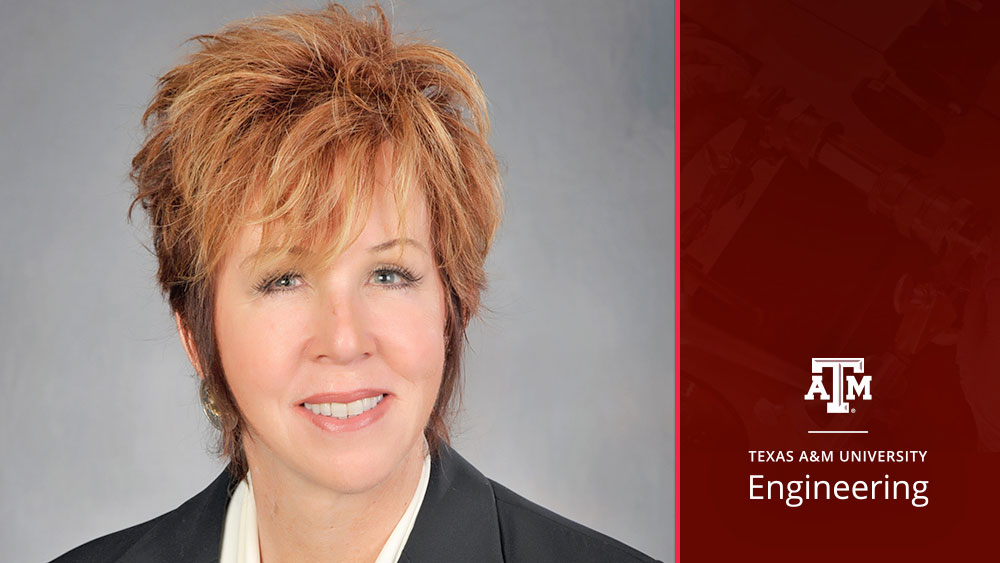
Dr. Robin Murphy’s research in robotics has led to the creation of the rescue robots field and the human-robot interaction field. |
Image: Texas A&M Engineering
Texas A&M University is part of the AI Institute for Societal Decision Making (AI-SDM), which is funded by a five-year, $20 million grant from the National Science Foundation (NSF). Led by Carnegie Mellon University, the collaboration brings together a team of artificial intelligence (AI) researchers and social scientists to develop tools for societal changes.
AI-SDM will improve the response to societal challenges in two areas — disaster management and public health — by creating human-centric AI tools to assist with critical decisions. The institute will also develop interdisciplinary training to bolster effective and rapid responses in uncertain and dynamic situations.
Dr. Robin Murphy, Raytheon Professor in the Department of Computer Science and Engineering at Texas A&M, will lead the AI-SDM efforts to innovate and transfer advances in AI for disaster management, from robots in the field to planning in emergency operation centers. The goal is to help emergency managers rapidly comprehend the extent of a disaster and equitably allocate resources like emergency aid, shelter, food and rescue efforts.
“Typically, AI researchers knock on emergency managers’ doors saying, ‘Hey, we developed this great AI algorithm in the lab and we’re sure you’ll love it. Here’s a thumb drive with the code and a journal article that explains it all for you. Bye.’ That hasn’t worked! I am so proud that everyone on the grant is 110% committed to understanding the real needs and leveraging the promise of AI to save lives and accelerate economic recovery — or even prevent disasters entirely,” Murphy said.
“Foundational research in AI and machine learning has never been more critical to the understanding, creation and deployment of AI-powered systems that deliver transformative and trustworthy solutions across our society,” said Margaret Martonosi, NSF assistant director for computer and information science and engineering. “These recent awards, as well as our AI Institutes ecosystem as a whole, represent our active efforts in addressing national economic and societal priorities that hinge on our nation’s AI capability and leadership.”
AI-SDM is bringing together experts from the School of Computer Science and Dietrich College of Humanities and Social Sciences at Carnegie Mellon, as well as Harvard University, Boston Children’s Hospital, Howard University, Penn State University, Texas A&M, the University of Washington, the MITRE Corporation, Navajo Technical University and Winchester Thurston School.
This diverse group of researchers and practitioners will work with emergency management agencies such as the Texas and Pennsylvania Departments of Emergency Management, the National Oceanic and Atmospheric Administration, nonprofits, companies, hospitals and health clinics to enhance decision-making.
“The National AI Research Institutes are a critical component of our nation’s AI innovation, infrastructure, technology, education and partnerships ecosystem,” said Sethuraman Panchanathan, NSF director. “These institutes are driving discoveries that will ensure our country is at the forefront of the global AI revolution.”
AI-SDM will improve the response to societal challenges in two areas — disaster management and public health — by creating human-centric AI tools to assist with critical decisions. The institute will also develop interdisciplinary training to bolster effective and rapid responses in uncertain and dynamic situations.
Dr. Robin Murphy, Raytheon Professor in the Department of Computer Science and Engineering at Texas A&M, will lead the AI-SDM efforts to innovate and transfer advances in AI for disaster management, from robots in the field to planning in emergency operation centers. The goal is to help emergency managers rapidly comprehend the extent of a disaster and equitably allocate resources like emergency aid, shelter, food and rescue efforts.
“Typically, AI researchers knock on emergency managers’ doors saying, ‘Hey, we developed this great AI algorithm in the lab and we’re sure you’ll love it. Here’s a thumb drive with the code and a journal article that explains it all for you. Bye.’ That hasn’t worked! I am so proud that everyone on the grant is 110% committed to understanding the real needs and leveraging the promise of AI to save lives and accelerate economic recovery — or even prevent disasters entirely,” Murphy said.
“Foundational research in AI and machine learning has never been more critical to the understanding, creation and deployment of AI-powered systems that deliver transformative and trustworthy solutions across our society,” said Margaret Martonosi, NSF assistant director for computer and information science and engineering. “These recent awards, as well as our AI Institutes ecosystem as a whole, represent our active efforts in addressing national economic and societal priorities that hinge on our nation’s AI capability and leadership.”
AI-SDM is bringing together experts from the School of Computer Science and Dietrich College of Humanities and Social Sciences at Carnegie Mellon, as well as Harvard University, Boston Children’s Hospital, Howard University, Penn State University, Texas A&M, the University of Washington, the MITRE Corporation, Navajo Technical University and Winchester Thurston School.
This diverse group of researchers and practitioners will work with emergency management agencies such as the Texas and Pennsylvania Departments of Emergency Management, the National Oceanic and Atmospheric Administration, nonprofits, companies, hospitals and health clinics to enhance decision-making.
“The National AI Research Institutes are a critical component of our nation’s AI innovation, infrastructure, technology, education and partnerships ecosystem,” said Sethuraman Panchanathan, NSF director. “These institutes are driving discoveries that will ensure our country is at the forefront of the global AI revolution.”